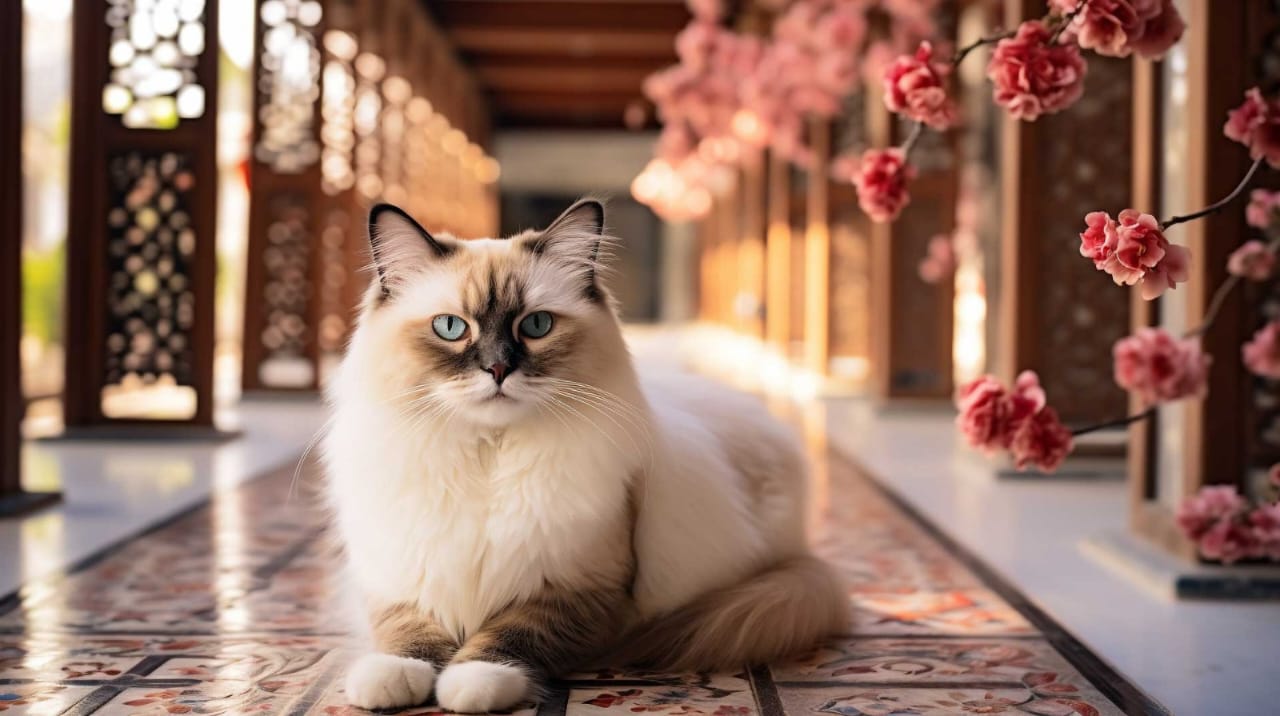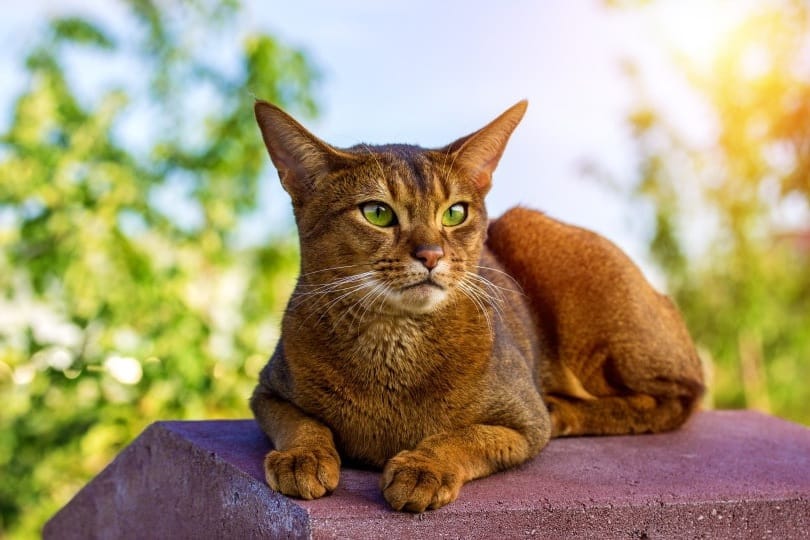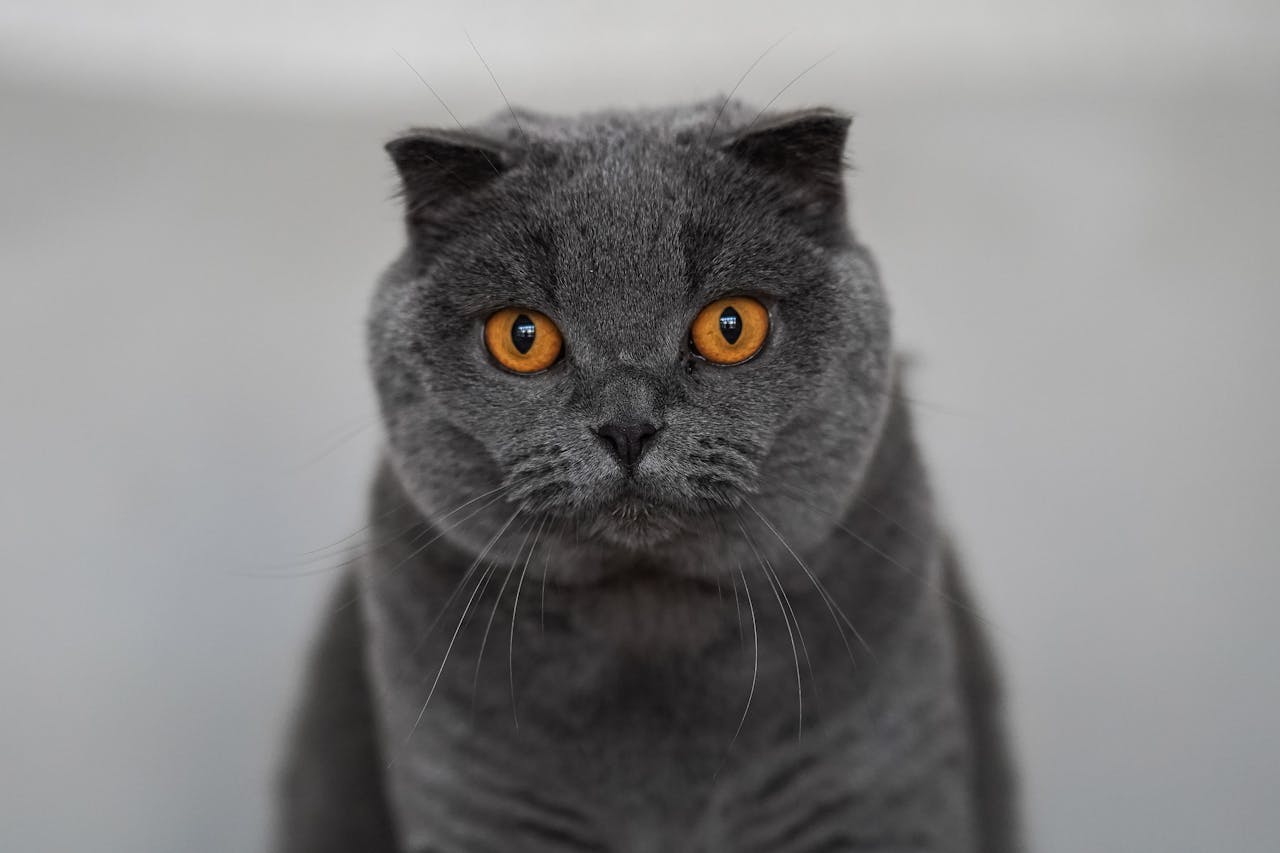The British Shorthair is a charming and robust cat breed known for its plush coat, round face, and affectionate personality. With their calm demeanor and adaptable nature, these cats make excellent companions for families and individuals alike.
Their distinctive appearance, coupled with their friendly and easygoing temperament, has made them one of the most beloved cat breeds worldwide.

Table of Contents
Introduction
The British Shorthair is one of the oldest and most popular cat breeds, known for its round features, plush coat, and friendly disposition. Originally bred in Britain, this breed has become a favorite among cat lovers due to its adaptability and affectionate nature.
British Shorthairs are known for their thick, dense coats and large, expressive eyes that add to their irresistible charm.
These cats are independent yet enjoy spending time with their human families. They are not overly demanding but appreciate gentle affection and companionship.
If you are looking for a low-maintenance yet loving pet, the British Shorthair might be the perfect choice for you.
Looking for more reasons to adore cats? Read our article, Why Cats Are the Best Pets?
History and Origin
The British Shorthair has a rich history that dates back to ancient Rome. These cats were initially brought to Britain by the Romans, where they were used to control rodent populations. Over time, they adapted to the British climate and developed a sturdy, thick coat.
In the 19th century, British cat breeders refined the breed, focusing on enhancing its plush coat and round features.
The British Shorthair was officially recognized as a breed in the early 20th century and has since become one of the most popular and recognizable cats in the world.

Why Were British Shorthairs Created?
British Shorthairs were initially bred for their hunting abilities and resilience. Over time, they were selectively bred for their distinctive appearance and affectionate nature, making them one of the most desirable cat breeds today.
Their plush, dense coats and stocky build give them a unique and regal presence, setting them apart from other breeds.
Physical Characteristics
British Shorthairs are medium to large-sized cats with a well-muscled and sturdy build. They have a broad chest, short legs, and a round face with chubby cheeks. Their eyes are large and expressive, typically coming in shades of copper, gold, or blue, depending on their coat color.
Their dense and plush coat comes in a variety of colors and patterns, including blue (the most popular), black, white, cream, and tabby. The coat is short but thick, requiring minimal grooming.

Temperament and Personality
British Shorthairs are known for their calm and affectionate nature. They are independent cats that enjoy companionship but do not demand constant attention. They are friendly, patient, and good with children and other pets, making them an excellent choice for families.
These cats have a playful side but are generally less active than some other breeds. They enjoy lounging around the house, observing their surroundings, and engaging in moderate play sessions.
Choosing the Right British Shorthair Kitten
When selecting a British Shorthair kitten, consider factors such as health, temperament, and breeder reputation. Look for kittens with bright eyes, a thick and plush coat, and a friendly disposition.
Ethical breeders prioritize the well-being of their kittens and ensure they are well-socialized from an early age. Check out our guide on Choosing the Perfect Kitten for more tips.

Intelligence and Training
British Shorthairs are intelligent cats that can learn commands and routines. They respond well to positive reinforcement and enjoy interactive toys and puzzles that challenge their minds.
While they may not be as trainable as some other breeds, they can be taught simple tricks and can easily adapt to household routines.
Exercise and Energy Levels
British Shorthairs have moderate energy levels. They enjoy playtime but are not as hyperactive as some other breeds. Providing them with toys, scratching posts, and occasional interactive play sessions will help keep them engaged and healthy.
Since they are prone to weight gain, regular play and exercise are essential to maintain their overall well-being.

Diet and Nutrition
A well-balanced diet is crucial for British Shorthairs to maintain their health and prevent obesity. High-quality commercial cat food that is rich in protein is recommended.
Some owners also choose a raw or homemade diet, but consulting a veterinarian is essential to ensure proper nutrition.
Healthy Foods for British Shorthairs:
- High-quality commercial cat food
- Lean meats such as chicken, turkey, and fish
- Cooked eggs (in moderation)
- Vegetables like carrots and peas (as occasional treats)
Unhealthy Foods to Avoid:
- Chocolate and caffeine (toxic to cats)
- Onions, garlic, and chives (can cause digestive issues)
- Dairy products (many cats are lactose intolerant)
- Grapes and raisins (can cause kidney failure)
- Processed and salty foods
Health and Lifespan
British Shorthairs are generally healthy cats with a lifespan of 12 to 20 years. However, they are prone to certain health issues, including:
Regular vet check-ups, a balanced diet, and an active lifestyle can help prevent health problems and ensure a long, healthy life.

Grooming and Coat Care
The British Shorthair’s dense coat requires minimal grooming. Weekly brushing is sufficient to remove loose hairs and keep their coat in excellent condition.
Regular nail trimming, ear cleaning, and dental care should also be part of their grooming routine.
Working Roles and Versatility
While British Shorthairs are primarily companion animals, they retain their natural hunting instincts. They are excellent at keeping homes rodent-free and are known for their patience and adaptability, making them great therapy animals.
Fun Facts About British Shorthairs
- The British Shorthair is one of the oldest cat breeds, dating back to ancient Rome.
- The famous Cheshire Cat from Alice in Wonderland is believed to be based on a British Shorthair.
- They are known for their plush, “teddy bear” appearance.
- British Shorthairs are one of the most popular cat breeds worldwide.

Challenges of Owning a British Shorthair
While British Shorthairs are low-maintenance, they are prone to weight gain and require portion-controlled feeding. They also enjoy a quieter environment and may not be as social or needy as other breeds.
Tips for British Shorthair Owners
- Provide a high-quality diet to prevent obesity.
- Engage in moderate play sessions to keep them active.
- Ensure regular vet check-ups for early health detection.
- Give them space while still providing affection and companionship.
Learn More About Another Cat Breed
Are you curious about other cat breeds? Discover more fascinating felines by reading about Maine Coon Cats, Persian Cats, Domestic Shorthair Cats, Ragdoll Cats, Bengal Cats, and Sphynx Cats. Each breed has its unique charm, personality, and care requirements, making them wonderful companions for cat lovers!
Whether you prefer the fluffy elegance of a Maine Coon, the regal beauty of a Persian, the easygoing nature of a Domestic Shorthair, the affectionate and docile Ragdoll, the energetic and wild-looking Bengal, or the unique and hairless Sphynx, there’s a perfect cat for every pet lover.

Final Thoughts on British Shorthairs
The British Shorthair is a perfect blend of charm, affection, and independence. Their plush coats, calm personalities, and easygoing nature make them an excellent choice for families and individuals alike.
While they require minimal grooming and are not overly demanding, they still enjoy companionship and moderate play. If you are looking for a dignified yet affectionate feline friend, the British Shorthair is an excellent choice!
FAQs
Is a British Shorthair cat a good pet?
Yes, they are affectionate, easygoing, and great for families.
Is British Shorthair expensive?
Yes, they are one of the pricier breeds, costing anywhere from $1,000 to $3,000.
Do British Shorthair cats have health problems?
They are generally healthy but can be prone to obesity, heart disease (HCM), and dental issues.
Do British Shorthair cats like to be cuddled?
They enjoy affection but prefer sitting near you rather than being held or cuddled excessively.




